Everyday Runners
A podcast about the feelings, things, practices and methods of running.
I interview experts and everyday runners about how they engage with and practice running.
This is a new podcast so I’m very keen to hear any thoughts or observations you might have about it. Perhaps you know of someone I should interview: a friend of yours, or, perhaps there is an elite runner out there who you think I should interview.
If you would like to get in touch, please send an email to readingsidewayspress@gmail.com
Episodes
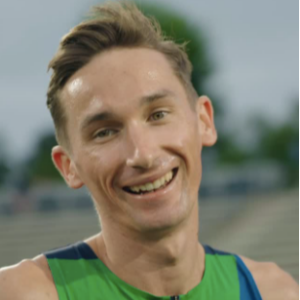
Sunday Jun 22, 2025
Sunday Jun 22, 2025
Hey! And welcome back to Everyday Runners - I’m Andy Fuller, a runner, coach and podcaster based in Leiden, The Netherlands.
Thanks to the supporters of this podcast: Dominic, Nesrine, Levi, Gianluca, Joao and Bob. I’m trying to keep this podcast free from advertisements and wholly listener-supported. If you believe that this is a worthy podcast, you can support the podcast via the Buy Me a Coffee platform.
This podcast is also supported by my publishing house, Reading Sideways Press, which I co-founded with Nuraini Juliastuti.
This episode is the second in a quick series leading up to the BIG5 and BIG MILE taking place in Utrecht on Saturday 28th June.
My guest for this episode is Jack Anstey, the current Australian record holder for the mile on the road. Jack is an Under Armour athlete and is based in Flagstaff, Arizona. He competed for Illinois State University during his college years.
We talk about how he came to running in the first place and then to the States on an athletic scholarship. Jack tells us about how contracting Covid inadvertently led to him getting his contract with Under Armour. I asked Jack also about how he races and what he finds so magical about the mile.
I want to thank Jack specifically for his availability for this conversation, which I enjoyed very much. I hope you enjoy it too.
Until next time, doei doei
Links:
Andy Fuller/Reading Sideways Press
Strava: Andy Fuller
Instagram: Everyday Runners Leiden
Email: everydayrunnerspodcast@gmail.com
Support the Podcast via Buy me a Coffee
Music by Jeroen Rondeel of Cymbaline
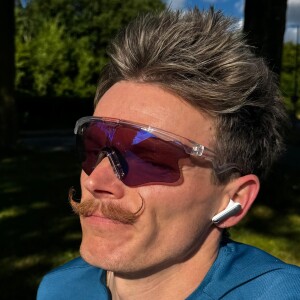
Friday Jun 20, 2025
Friday Jun 20, 2025
Welcome to Episode #69: I’m Andy Fuller, the host of Everyday Runners and a co-founder of Reading Sideways Press.
I love making this podcast: it is the most satisfying ‘work’ that I have done. And that’s why I want to thank the supporters of the podcast in helping me make it sustainable: Dominic, Nesrine, Levi, Gianluca, Joao and Bob. Dominic is the latest supporter and he ran a 10,000m and Club Record last week at the Gouden Spike in Leiden. So: massive congrats to you.
Noah Schutte, another friend of the podcast and regular guest, became national champion again for the 10,000m, on his home track, so it was a sweet victory for him.
This episode is the first in a series of episodes in which I interview athletes taking part in the BIG5 in the Nedereindse Berg in Utrecht.
In this episode I speak with Emiel Berghout who is rapidly becoming one of the most well-known athletes in the Netherlands largely through his popular YouTube channel and consistent high level performances. I generally like the way Emiel goes about his running - in both a serious and not-so-serious manner.
So, we discuss his recent training and racing, his adaptation (or not) to the heat and what he is looking forward to do at the BIG5.
I hope you enjoy the show and if you are so inclined, please consider supporting the show via the Buy Me a Coffee platform.
Until next time, doei doei
***
Links:
Andy Fuller/Reading Sideways Press
Strava: Andy Fuller
Instagram: Everyday Runners Leiden
Email: everydayrunnerspodcast@gmail.com
Support the Podcast via Buy me a Coffee
Music by Jeroen Rondeel of Cymbaline

Thursday Jun 12, 2025
Thursday Jun 12, 2025
Yo! Welcome to this special edition of Everyday Runners where we speak with Norbert Groenewegen of Leiden Atletiek and the key organiser of the Gouden Spike (14th June 2025).
Norbert shares his perspective on the development of the GS, how it works for Leiden Atletiek, it's place in the Dutch athletics calendar and of course some of the highlights over the years.
We also discuss some of his perspectives as a runner in general (i.e. his views on Strava) and the coach-athlete relationship.
Enjoy and tot de volgende - doei doei
***
Links:
Andy Fuller/Reading Sideways Press
Strava: Andy Fuller
Instagram: Everyday Runners Leiden
Email: everydayrunnerspodcast@gmail.com
Support the Podcast via Buy me a Coffee
Music by Jeroen Rondeel of Cymbaline
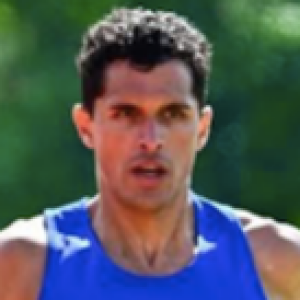
Tuesday Jun 10, 2025
Tuesday Jun 10, 2025
Yo! Welcome to Episode #67
Noah Schutte (episodes #34 & #14) and Cas Kopmels (episode #16) discuss their preparation for Leiden's premier European-level event, the Gouden Spike (Saturday 14th June).
We discuss racing for time versus racing for position and when it is handy to have a pacer; Cas's adaptation back into the Netherlands and his maintenance of his US-based coach; Noah's doubles and race-week chilling strategies.
The show finishes with some relatively, but not quite, rapid, rapid-fire questions about the usual running hot topics: Strava time predictions, Garmin coaching and Running (You) Tube
Until next time! Doei doei
Links:
Andy Fuller/Reading Sideways Press
Strava: Andy Fuller
Instagram: Everyday Runners Leiden
Email: everydayrunnerspodcast@gmail.com
Support the Podcast via Buy me a Coffee
Music by Jeroen Rondeel of Cymbaline
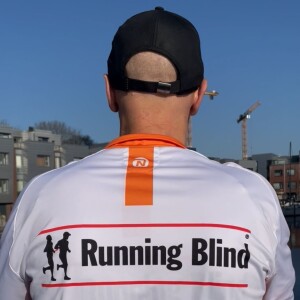
Saturday Jun 07, 2025
Saturday Jun 07, 2025
Hoi hoi! Welkom bij aflevering #66 van Everyday Runners. Ik ben Andy Fuller – jouw host – en een van de oprichters van Reading Sideways Press.
Het is lente hier – wat betekent: veel wind, af en toe een zonnetje, en natuurlijk zijn mensen weer massaal hun huizen aan het schilderen en verbouwen. Dus als je wat vreemde geluiden op de achtergrond hoort… tja, dit ‘studiootje’ is nog niet helemaal geluiddicht.
Even een dikke dankjewel aan de supporters van de podcast: Nesrine, Levi, Gianluca, João en Bob – supertof van jullie. Wil jij de show ook steunen? Check dan even de link naar Buy Me a Coffee in de show notes. En dankjewel ook aan iedereen die een rating op Spotify heeft achtergelaten – heel fijn!
Vanavond doe ik mee aan een estafette in Lisse met m’n team van Leiden Atletiek. Elk team heeft vier lopers, en we lopen allemaal 5 km. Als langeafstandsloper is het best ongewoon om eens in een teamwedstrijd te staan, dus ik heb er echt zin in. Ik werk nog steeds aan mijn 5 km-tijd – het doel is om onder de 16 minuten te duiken – dus hopelijk gaat dat deze zomer lukken.
In deze aflevering spreek ik met Martijn Rijsenbrij. Ik leerde Martijn kennen via twee gemeenschappelijke vrienden – Marit Hiemstra en Lysanne Wilkens, die ook meedoet aan het gesprek. Martijn is rapper, DJ én hardloper met een visuele beperking. We praten over zijn hardloopverhaal en hoe hij zijn sport heeft aangepast toen zijn zicht slechter werd. Ook praten we over zijn band met zijn buddy’s en hoe ze tijdens het rennen communiceren. Lysanne vertelt hoe het voor haar is om met Martijn te lopen.
Volgende week heb ik een paar afleveringen over de Gouden Spike, die op zaterdag 14 juni plaatsvindt in Leiden. Ik spreek dan met twee echte Leiden Legends – Noah Schutte en Cas Kopmels – over hun voorbereiding op de 10.000 meter.
Okee, dat was ‘m weer voor nu. Tot de volgende keer – doei doei!
Links:
Support the Podcast via Buy me a Coffee
Andy Fuller/Reading Sideways Press
Strava: Andy Fuller
Instagram: Everyday Runners Leiden
Email: everydayrunnerspodcast@gmail.com

Friday May 30, 2025
Friday May 30, 2025
This episode features an interview with Dr Laura Gubby of Canterbury Christ Church University.
I got in touch with Laura after reading her article, “Women trail runners’ encounters with vulnerability to male harassment in rural off-road spaces”, which she co-authored with Joanne Hill in 2024.
I guess I was curious about her research because I wanted to think more about the kind of privilege male runners can experience by virtue of their gender. This article fits in with my thinking that running isn’t always an egalitarian or equitable sport for everyone, all of the time: women runners need to negotiate feelings of empowerment and vulnerability at the same time while performing the ‘morally good’ practice of looking after their health in green spaces.
So, in this interview, I asked Laura about her own running practice, her research, her use of the work of scholars such as Henri Lefebvre and Doreen Massey, what made her informants feel vulnerable or threatened during a run and how male runners could be more aware of how their presence might or might not affect other runners. Anyway, that’s all for now. I hope you enjoy this episode.
Until next time
Doi doi
***
Thank you to Nesrine, Levi, Joao, Gianluca and Bob for supporting the show and helping to cover some of the costs via the Buy Me a Coffee Platform.
Shout out to the legend Paul Waye, who was featured in Episode 52, who has almost finished his 12 Steden Plog: running more than 42km per day, visiting 12 cities and picking up trash along the way. Always with an immovable smile on his face and with a sense of humour as he runs through the Netherlands in a banana suit
Thank you to the listeners who have smashed the ratings function on Spotify
Links:
Andy Fuller/Reading Sideways Press
Strava: Andy Fuller
Instagram: Everyday Runners Leiden
Email: everydayrunnerspodcast@gmail.com
Support the Podcast via Buy me a Coffee
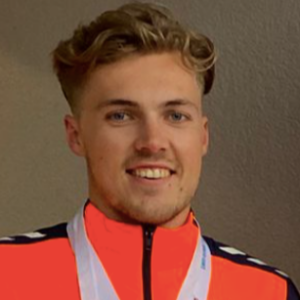
Friday May 23, 2025
Friday May 23, 2025
Halo en welkom bij aflevering #64 van Everyday Runners. Ik ben Andy Fuller, de host van deze podcast en mede-oprichter van Reading Sideways Press. Zoals je zeker al hebt gemerkt, is dit een speciale aflevering in het Nederlands – iets wat ik misschien vaker ga doen in de toekomst.
Allereerst een dikke dankjewel aan de supporters van deze podcast – Nesrine, Levi, Gianluca, Joao en Bob. Jullie steun via het Buy Me a Coffee-platform betekent echt veel voor me en helpt om Everyday Runners in de lucht te houden. Super bedankt!
In deze aflevering hoor je een gesprek met Zeb Beelen, een atleet van Leiden Atletiek. Zeb is een heel gedreven en fanatieke atleet. Hij doet mee aan allerlei soorten wedstrijden – van de steeplechase tot cross en de halve marathon. Hij staat bekend om zijn vechtersmentaliteit en geeft zich nooit zomaar gewonnen. Onlangs werd hij tweede in de halve marathon van Leiden met een tijd van 1:10:15. Het is slechts een kwestie van tijd voordat hij onder het uur en tien duikt.
De aflevering wordt grotendeels gehost door Leon Huiszoon, die je misschien nog kent uit aflevering vier en viertig – en zelfs helemaal terug in aflevering negen. Ik heb het stellen van de meeste vragen aan hem overgelaten, maar ik heb er zelf ook een paar tussendoor gegooid.
Tot slot: als je deze podcast leuk vindt, zou het super zijn als je een beoordeling wilt geven op Spotify. Er staan nu 48 ratings, en het zou top zijn om de 50 aan te tikken. Je kunt ook updates volgen via Instagram – het account is: everydayrunnersleiden.
Blijf lekker lopen en tot de volgende aflevering!
Doi doi
Links:
Andy Fuller/Reading Sideways Press
Strava: Andy Fuller
Instagram: Everyday Runners Leiden
Email: everydayrunnerspodcast@gmail.com
Support the Podcast via Buy me a Coffee
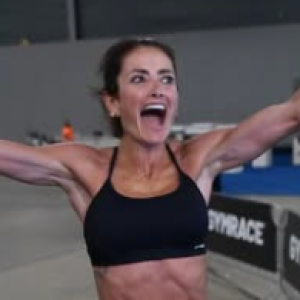
Monday May 12, 2025
Monday May 12, 2025
It took me a while to get to interview Nesrine Leene, but finally, through a friend of a friend of a friend I got in touch with her. And yes, like my references mentioned, she is quite unstoppable. Nesrine, who was a top level down-hill skier in her youth, switched to long-distance running upon settling down in the absolutely flat Low Lands. So, Nesrine now has two national records to her name - the marathon and the half-marathon, for Lebanon. Her charm and sense of fun in all that she does of course though can't be measured.
As usual: thanks to my supporters: Levi, Joao, Gianluca and Bob.
Thank you to the legendary Jeroen Rondeel for the beautiful music that accompanies this podcast.
tot de volgende --
doi doi -
<3<3<3
Links:
Andy Fuller/Reading Sideways Press
Strava: Andy Fuller
Instagram: Everyday Runners Leiden
Email: everydayrunnerspodcast@gmail.com
Support the Podcast via Buy Me Coffee
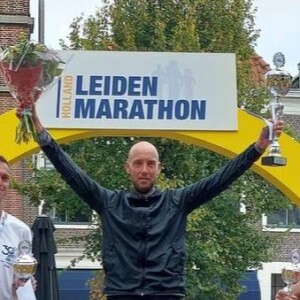
Tuesday May 06, 2025
Tuesday May 06, 2025
Yo! Welcome to Episode #62. This episode features a conversation with Maikel Stolwijk, a two time marathon winner and someone who has run under 2:30 four times. He is friends with half of the city of Leiden.
Maikel came over to dinner one evening and then afterwards, we had a chat about how he started to take his running seriously in his mid-30s, after previously being pretty keen on his footy (and drinking).
Maikel is dearly beloved so this podcast series would be lacking were it not to feature him. I've known Maikel for the length of my running journey - and yes, I've beaten him once: it was by 1 second in the Stevensloop (Nijmegen) in 2023 (I think).
I'd love to see Maikel be a bit more daring in the races he does - i.e. come on mate, do a few more 5km and 10km races :) But right now, he continues to smash the marathon.
Links:
Andy Fuller/Reading Sideways Press
Strava: Andy Fuller
Instagram: Everyday Runners Leiden
Email: everydayrunnerspodcast@gmail.com
Support the Podcast via Buy Me Coffee
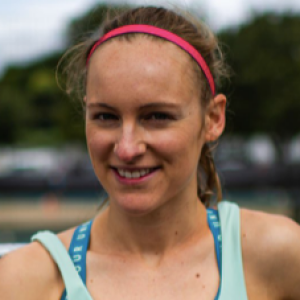
Wednesday Apr 30, 2025
Wednesday Apr 30, 2025
Yo! Stella Radford is a steeple chase and 5000m athlete who is now getting interested in longer format races (10km and 15km). Stella is currently based in Manizales, Colombia, so we talk about what it is like to train at altitude and in hilly terrain. But I first got in touch with her because of her article, The Spatial Geographies of Women Urban Runners (2024) which looks at the spaces women use for running in Melbourne. So, this conversation is in three parts: Stella as athlete; Stella as a runner in Manizales, and Stella as urban planning researcher.
Enjoy and until next time: doi doi :)
Links:
Andy Fuller/Reading Sideways Press
Strava: Andy Fuller
Instagram: Everyday Runners Leiden
Email: everydayrunnerspodcast@gmail.com
Support the Podcast via Buy Me Coffee

